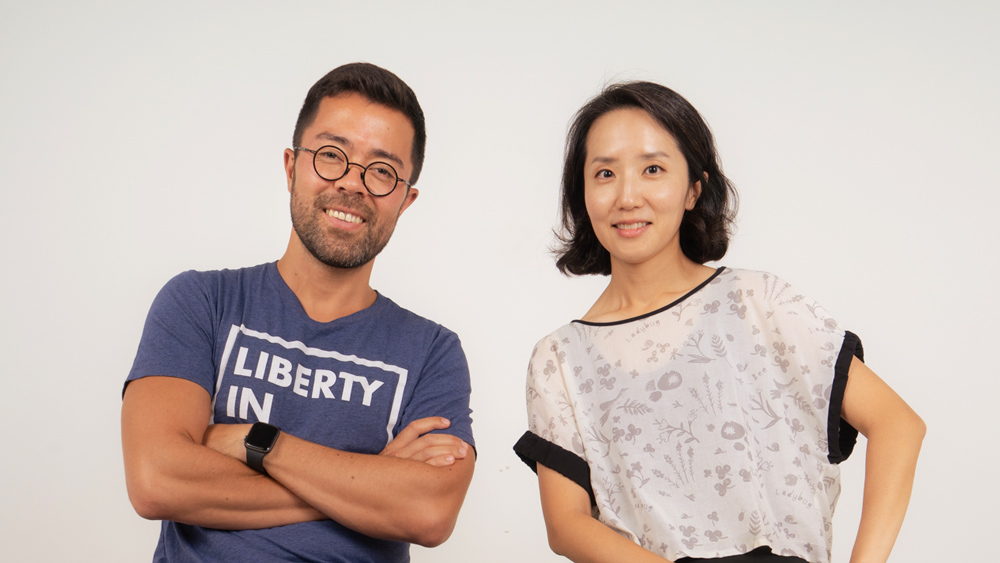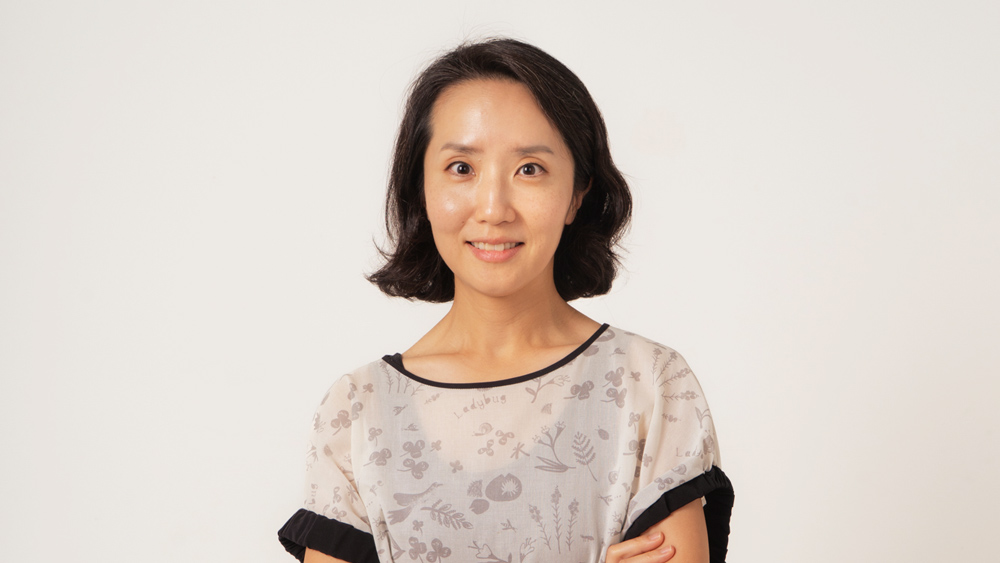A North Korean Refugee’s Journey - Pursuit of the Freedom to Learn
By Yukyung Lim
Yukyung is a participant of LiNK’s Intensive English Program (LIEP), designed to build the capacity of North Korean English speakers at the intermediate level. In partnership with the British Council, LIEP aims to cultivate participants’ communication and critical thinking skills in English. LIEP is complementary to our broader LiNK English Language Program (LELP), which supports speakers of all proficiency levels.

I was born in North Korea—a place where identities are imposed, voices are silenced, and dreams are tightly confined. There, schooling is not a pathway to opportunity but a means of indoctrination, designed to enforce obedience and suppress individuality. But thanks to my mother’s courage, I never had to undergo that system. She made the bold decision to keep me out of school in North Korea. At age eight, I escaped to China to reunite with her, beginning a journey that would define not only my identity but also my deep, lifelong yearning to learn.
In China, my mother obtained a false identity for me so I could enroll in school. That first day in a rural classroom marked the beginning of a different kind of life. I was behind, anxious, and constantly aware of our fragile situation.
For the first time, however, I was learning not to obey—but to think.
A year later, we moved to Beijing. There, I stepped into a world I had never imagined—one of academic rigor, intellectual freedom, and cultural diversity. It was in that environment that I first witnessed how learning can transform a person. Each lesson, each classroom conversation, opened doors not only to knowledge but also to self expression, confidence, and hope.
One winter afternoon in 2010, I was on my way to the bookstore, backpack heavy on my shoulders. Beijing was bleak and cold that year. Snowflakes fell softly, only to be crushed by cars and vanish into the grime of the streets. That scene reflected my life: I bore a name I couldn’t speak aloud, fears I couldn’t share, and a fragile existence that felt quietly lonely.
Inside the bookstore, warmth greeted me. I wandered through the aisles, searching for a quiet corner to rest. Then, I saw it—a book with a black-and-white cover, its portrait etched in solemn ink. The man’s composed expression exuded a power I longed for. I picked it up, almost unconsciously.
“I Have a Dream.”
“I have a dream that one day... people will not be judged by the color of their skin but by the content of their character.”
“This is the time to make real the promises of democracy.”
“We will not be satisfied until justice rolls down like waters and righteousness like a mighty stream.”
These weren’t just words. They were light, seeping through a crack I hadn’t known existed. In a world that had taught me to stay small and silent, they spoke to a part of me I had hidden away. For the first time, I felt truly seen—not for where I was from or what I looked like, but for my thoughts, my voice, and the quiet strength I carried within.
Later, after arriving in South Korea, I faced new challenges. Though I had returned to my cultural roots, I felt out of place. I was older than my classmates, unfamiliar with many social norms, and unsure of how to fit in. But with time, I began to build friendships and navigate this new society. Again, learning was central—it provided not just academic skills but also the social space to grow and belong.
During university, I studied abroad in Texas. It was my first experience in a Western classroom. I was struck by the openness, the individuality, and the value placed on diverse opinions. Being among students from different backgrounds showed me how perspectives can differ—and how that difference enriches everyone.
Wherever I was—in China, Korea, or the United States—the classroom was where I grew the most. It was where I stepped outside my comfort zone, gained confidence, and slowly came to understand who I was becoming.
Across all these countries, I’ve developed not just a global perspective but a deep appreciation for the transformative power of learning. In each setting, the classroom became both a battlefield and a sanctuary. I struggled, but I also discovered. I learned new languages, absorbed new worldviews, and came to realize that I was more than a refugee or survivor. I was a thinker, a student, and a human being with agency.
And then I understood something deeper: My story is rare—but it shouldn’t be. There are still millions of children in North Korea growing up without the right to question, to dream, or to imagine a world beyond their borders. They deserve more than silence or sympathy. They deserve the same chance I had—to envision a different future and be equipped to pursue it.
That’s why I’m sharing my story through Liberty in North Korea. Because stories hold power. They build bridges, shatter stereotypes, and create connections.
North Korean people are not just victims. They are potential scholars, leaders, creators, and changemakers—if only they are given the freedom to grow.
My dream is to one day build a global school for children who, like me, come from hardship but brim with promise. I want to help others discover the same sense of identity and possibility that learning gave me. Until then, I will continue to advocate, teach, and connect.
If you’re reading this, I hope you’ll join me. Learn more. Speak up. Share stories. Support organizations like LiNK that are fighting to empower North Korean people with freedom, dignity, and opportunity.
Because when you invest in a child’s education, you’re not only changing one life—you’re challenging an entire system and planting seeds for a freer world.
Opportunities like LiNK’s Intensive English Program (LIEP) are helping North Koreans succeed in resettlement, reach their goals, and lead change on this issue. Your support can help us continue to make an impact in the lives of North Korean refugees.
Give Today
At the Forefront of North Korean Human Rights Work | LiNK Organizational Update
Liberty in North Korea welcomes Sarah Yun as our new Chief Regional Officer (CRO), South Korea, as our previous South Korea Country Director, Sokeel Park, transitions into a new role as our Chief Strategy Officer (CSO). Sarah and Sokeel will collaboratively lead LiNK’s South Korea operations while growing LiNK’s impact through their respective areas of expertise.

Over a Decade of Dedication to Human Rights
Sarah Yun brings a wealth of experience and expertise from her work to advance human rights in North Korea and across Asia during the past 15 years. She most recently served as the Country Director of Korea and Cambodia at the National Democratic Institute (NDI), managing the Institute’s operations and programs in the two countries.
Previously, Sarah was a Senior Manager for Asia at the National Endowment for Democracy (NED), overseeing the Cambodia, Vietnam, North Korea, Thailand, and the Philippines programs and teams. Prior to her experience at the NED, she worked at the Center for International Private Enterprise where she managed the Cambodia and North Korea programs, in addition to the Papua New Guinea program and field office.
“I have had the opportunity to work on issues related to various countries in Asia at a variety of institutions throughout my career, but my greatest passion has always been to envision a North Korea where its people can choose their own future. I am deeply inspired by the stories and resilience of the North Korean people and am committed to supporting their leadership and efforts toward a better future.”
– Sarah Yun, LiNK CRO

Sarah holds a BA in Political Science and Business Institutions from Northwestern University and MA in International Relations and International Economics from Johns Hopkins University School of Advanced International Studies. Her journey with LiNK began in college, when she came across her campus LiNK Team.
“I first learned about LiNK during my college years, when chapters began to emerge across the United States. Since then, I have respected the organization’s mission and work. When I was given the opportunity to work at LiNK, I had great anticipation and excitement at the thought of joining and supporting North Koreans' journey toward a free and open future. Together with the LiNK team, I hope to contribute to amplifying the leadership and voices of young North Korean defectors in creative and impactful ways.”
– Sarah Yun, LiNK CRO
A Strategic Shift
As LiNK continues to expand and refocus our programs in response to the evolving needs of this issue, there was a timely opportunity to bring on Sarah and diversify the organization’s impact.
As CRO, Sarah Yun will lead LiNK’s South Korea team, oversee our Capacity Building Programs, and represent the organization in South Korea. Sokeel Park will jointly represent LiNK alongside Sarah and maintain key collaborative efforts with external stakeholders. As CSO, Sokeel’s scope will also encompass the development of the organization’s broader strategy and Information Access Programs (IAP). Moving forward, IAP is an area of work which we are expanding as a crucial way to support North Koreans driving change inside the country, and achieve our vision.
North Korean refugees consistently tell us that getting more outside information into North Korea is crucial for empowering North Koreans to change their country. The importance of this area of work has only increased in recent years, so it is vital that we are able to increase the resources and time we are investing into these strategies. I’m extremely grateful to our donors for joining with us and making this expansion and these initiatives possible.”
– Sokeel Park, LiNK CSO
This is a challenging time for North Korean people, refugees, and the issue. We are grateful to Sarah for bringing her experience and expertise to LiNK and everyone whose support sustains our organization and enables us to grow.
We look forward to increasing our impact with Sarah’s leadership and sharing updates about our progress with our supporters.




